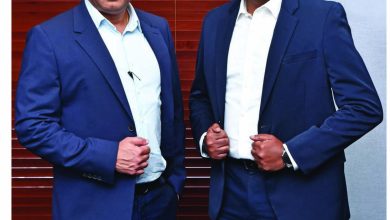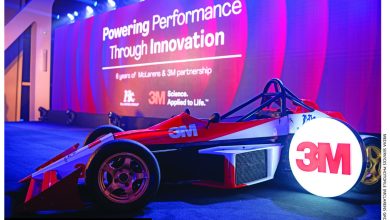MOUNTAIN HAWK EXPRESS
Q: What are the main components needed to nurture and improve a ‘great workplace,’ in your opinion?
 A: Our leadership team strives to cultivate an open culture that enables employees to voice their opinions and have their views respected.
A: Our leadership team strives to cultivate an open culture that enables employees to voice their opinions and have their views respected.
Trust is an integral part of our value system: we believe it’s an aspect that needs to be earned and practised consistently, and have observed how such a culture has helped overcome obstacles in connecting our teams across the organisation.
Ours is also a culture that promotes high performance and encourages growth.
Honouring employees, customers, and stakeholders is another value embedded in Mountain Hawk Express’ (MHE) culture. It builds respect and creates lasting relationships.
Integrity is woven into the heart of the business. To this end, the company periodically recognises and rewards individuals who have displayed honour and integrity, to ensure that these values are nurtured and sustained.
MHE considers every staff member to be part of the family and employees perceive their workplace as a second home due to the care they receive during work hours.
Employees were entitled to flexible work schedules even before the outbreak of the pandemic. These practices have enabled them to achieve an ideal work-life balance.
Innovation is a critical factor in improving all aspects of business sustainability and relevance. We believe that employees need to be challenged to foster an innovative culture.
At MHE, a strong employee engagement calendar infuses fun and laughter into the work culture, which helps identify new ideas. We believe that every major innovation begins with a simple idea that is nurtured, evaluated and executed at the appropriate time.
 Q: Could you outline how workplaces and their cultures have changed since early last year?
Q: Could you outline how workplaces and their cultures have changed since early last year?
A: The pandemic has had a drastic impact on workplaces and culture.
Working from home (WFH) and virtual communication initiatives have become the ‘new norm.’ And workplaces have adapted to a hybrid environment that offers employees the freedom to choose how they work.
Meanwhile, technology and automation have ensured a smooth transition to the WFH culture.
As a company that is involved in the express transportation sector, MHE was severely impacted by the pandemic. Thankfully, the strong customer centric culture enabled our teams to offer uninterrupted service.
Q: And how important is employee engagement?
A: Employee engagement has become a critical driver of business success, in my opinion.
Greater levels of employee engagement have been proven to promote talent retention, foster customer loyalty, and improve organisational performance and stakeholder value.
MHE believes that it’s our people who make the difference. It follows the ‘people-service-profit’ philosophy based on the belief that a happy and engaged employee generates positive customer experiences, which eventually lead to improved financial performance.
Q: What is the role of senior management in promoting an open and engaging culture?
A: The MHE leadership team understands the importance of having an engaged workforce to drive business performance.
In the light of the above, the senior management team strives to live by the leadership code to ensure complete visibility and accountability. They act as role models and aspire to live by the values that the company preaches.





